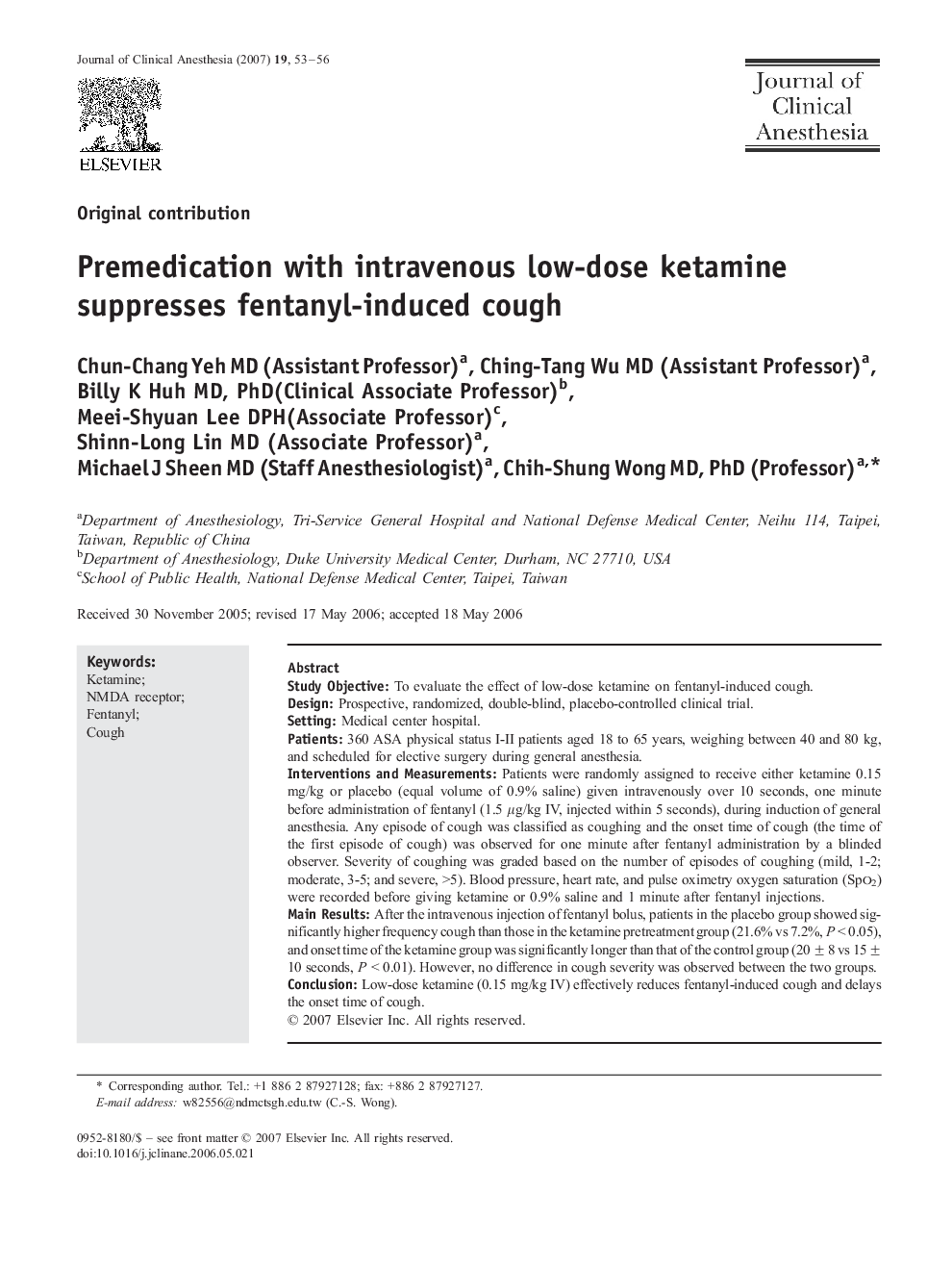| Article ID | Journal | Published Year | Pages | File Type |
|---|---|---|---|---|
| 2764227 | Journal of Clinical Anesthesia | 2007 | 4 Pages |
Study ObjectiveTo evaluate the effect of low-dose ketamine on fentanyl-induced cough.DesignProspective, randomized, double-blind, placebo-controlled clinical trial.SettingMedical center hospital.Patients360 ASA physical status I-II patients aged 18 to 65 years, weighing between 40 and 80 kg, and scheduled for elective surgery during general anesthesia.Interventions and MeasurementsPatients were randomly assigned to receive either ketamine 0.15 mg/kg or placebo (equal volume of 0.9% saline) given intravenously over 10 seconds, one minute before administration of fentanyl (1.5 μg/kg IV, injected within 5 seconds), during induction of general anesthesia. Any episode of cough was classified as coughing and the onset time of cough (the time of the first episode of cough) was observed for one minute after fentanyl administration by a blinded observer. Severity of coughing was graded based on the number of episodes of coughing (mild, 1-2; moderate, 3-5; and severe, >5). Blood pressure, heart rate, and pulse oximetry oxygen saturation (Spo2) were recorded before giving ketamine or 0.9% saline and 1 minute after fentanyl injections.Main ResultsAfter the intravenous injection of fentanyl bolus, patients in the placebo group showed significantly higher frequency cough than those in the ketamine pretreatment group (21.6% vs 7.2%, P < 0.05), and onset time of the ketamine group was significantly longer than that of the control group (20 ± 8 vs 15 ± 10 seconds, P < 0.01). However, no difference in cough severity was observed between the two groups.ConclusionLow-dose ketamine (0.15 mg/kg IV) effectively reduces fentanyl-induced cough and delays the onset time of cough.
